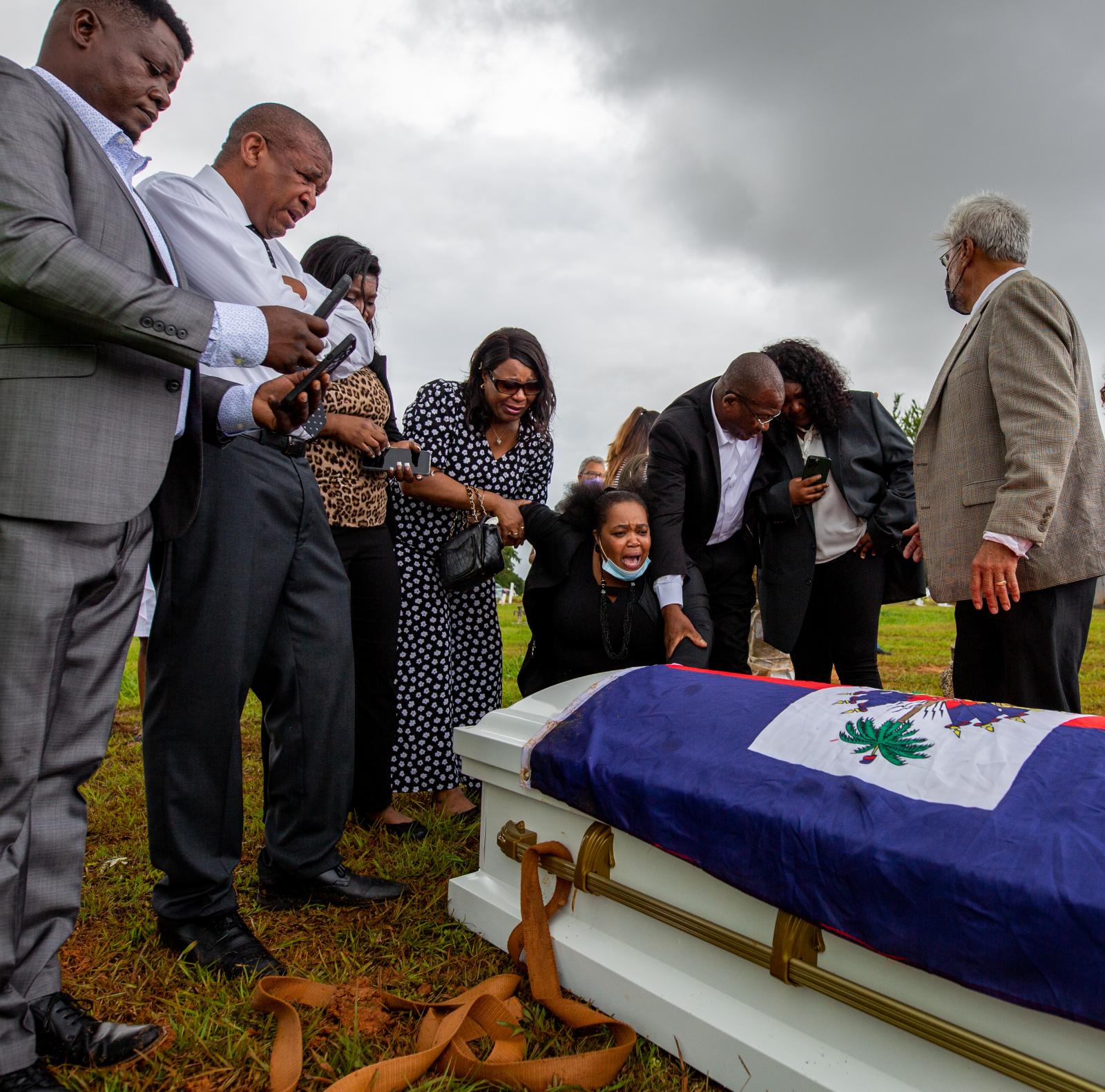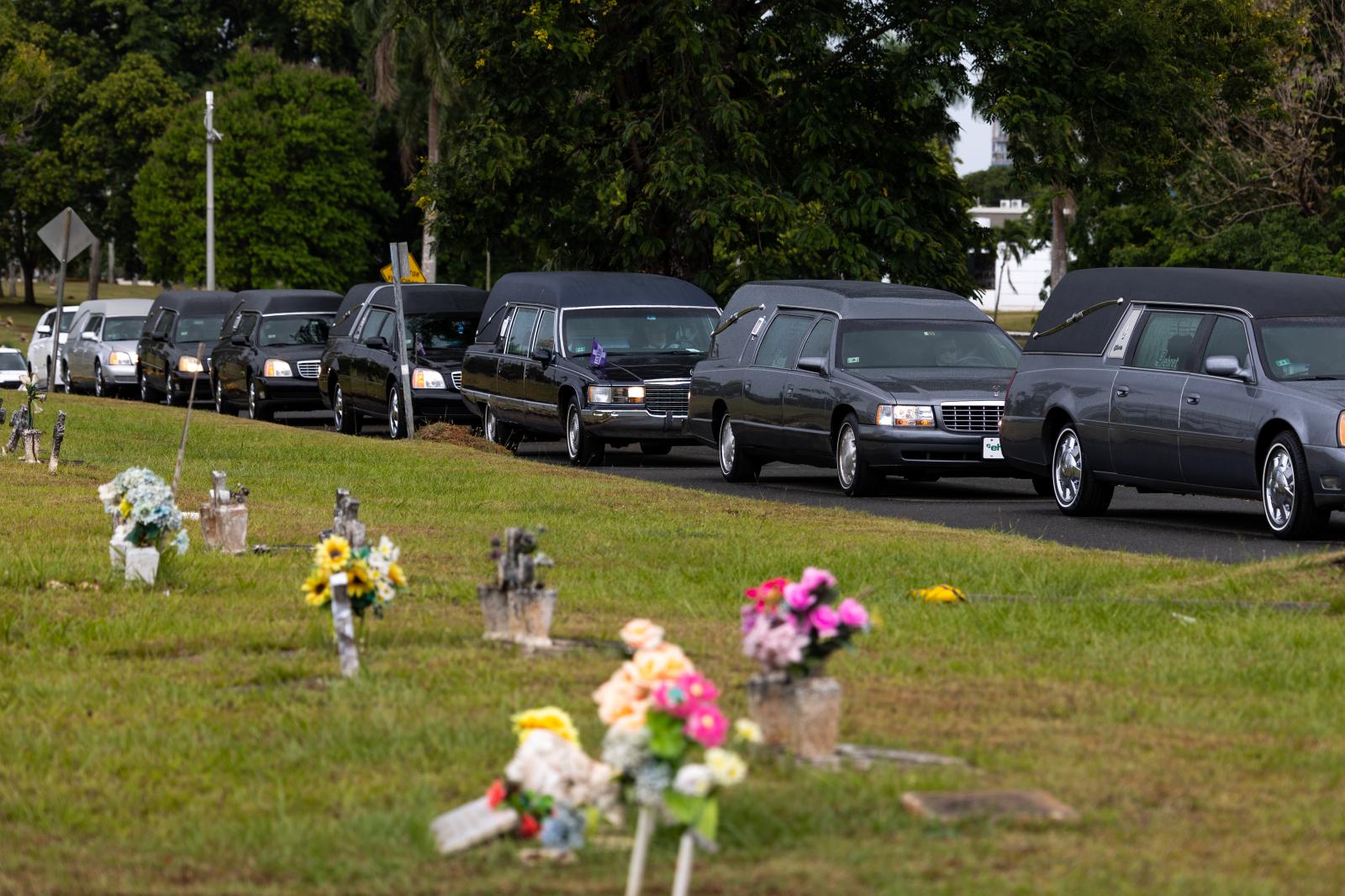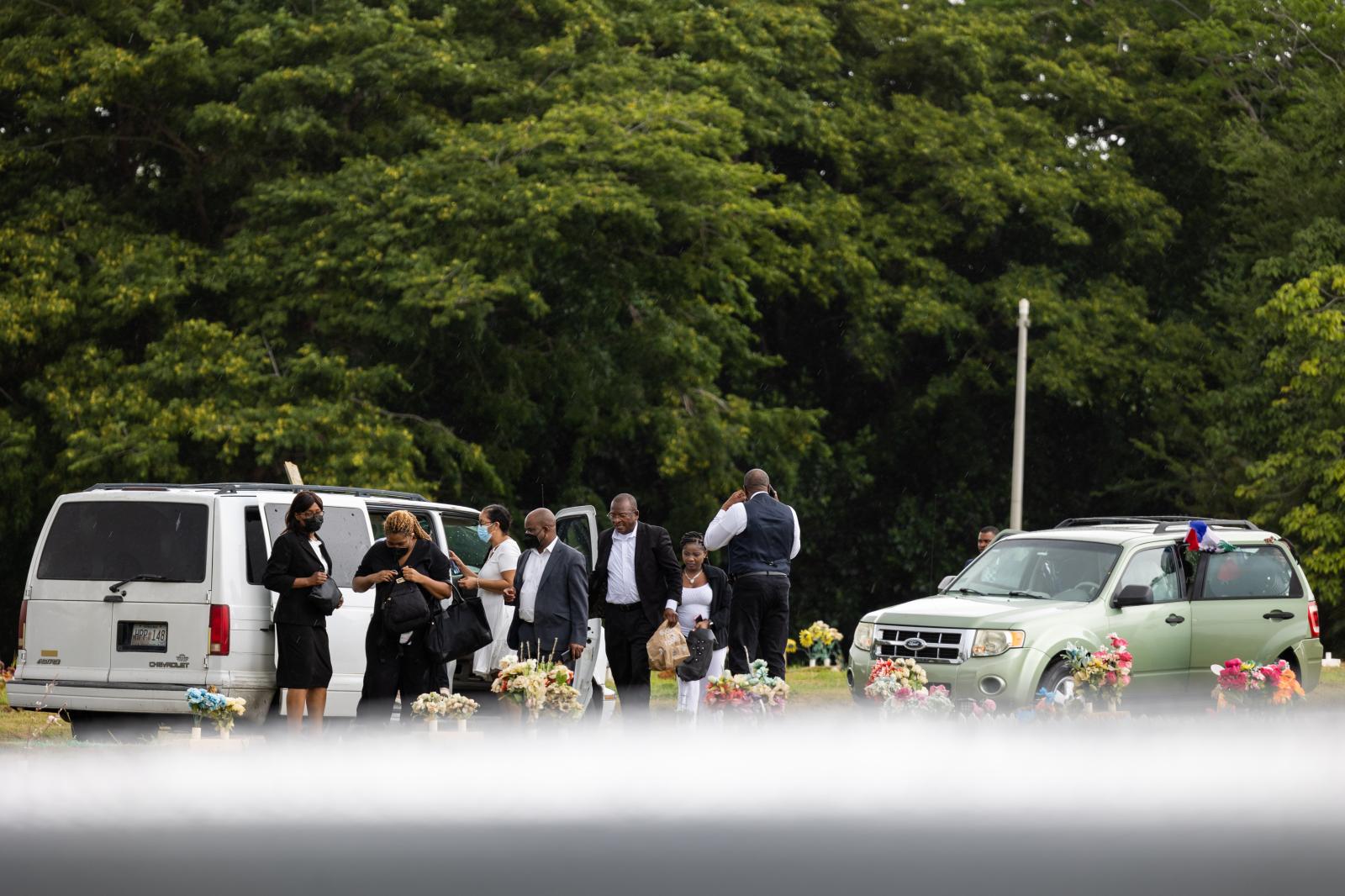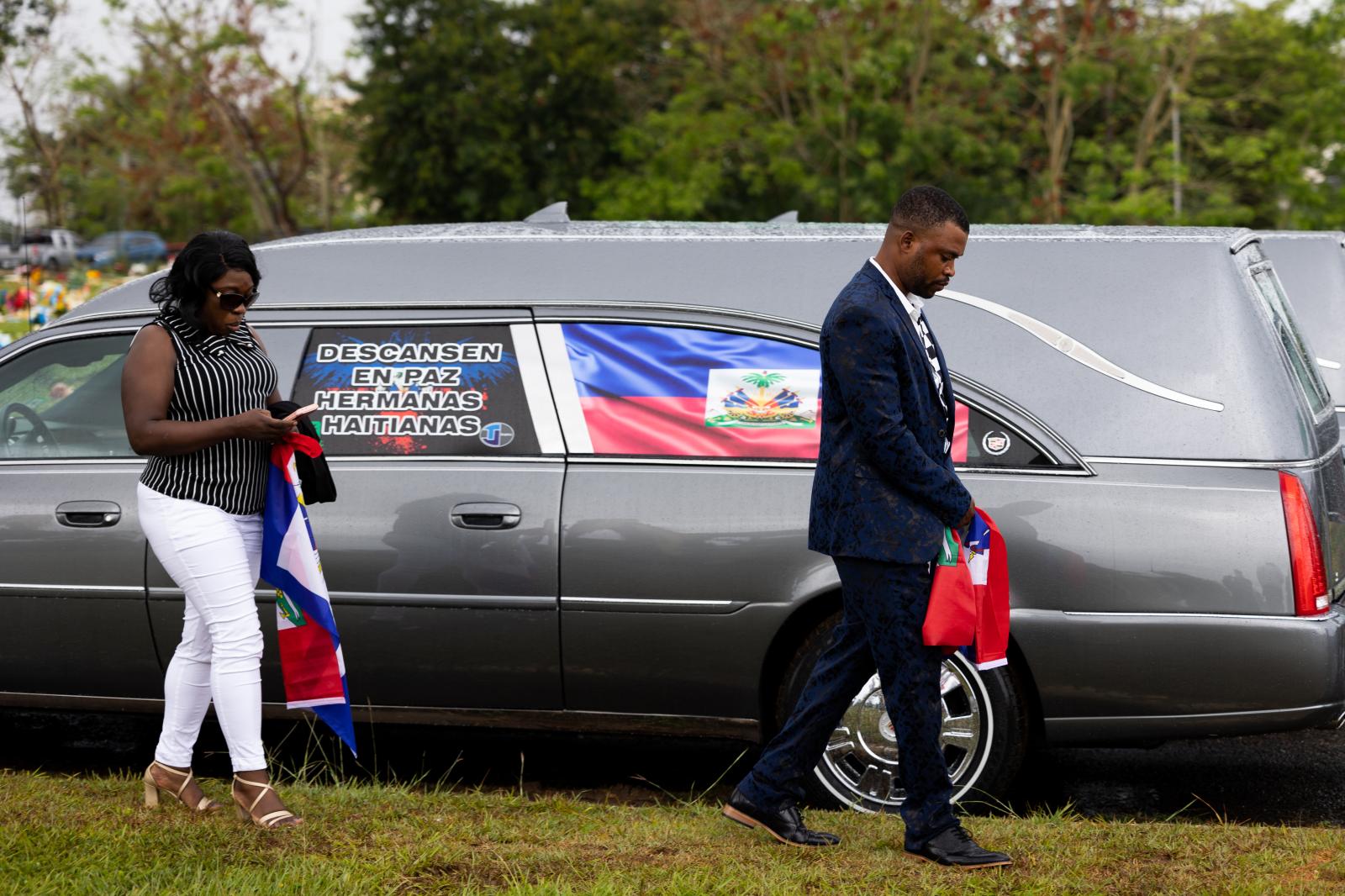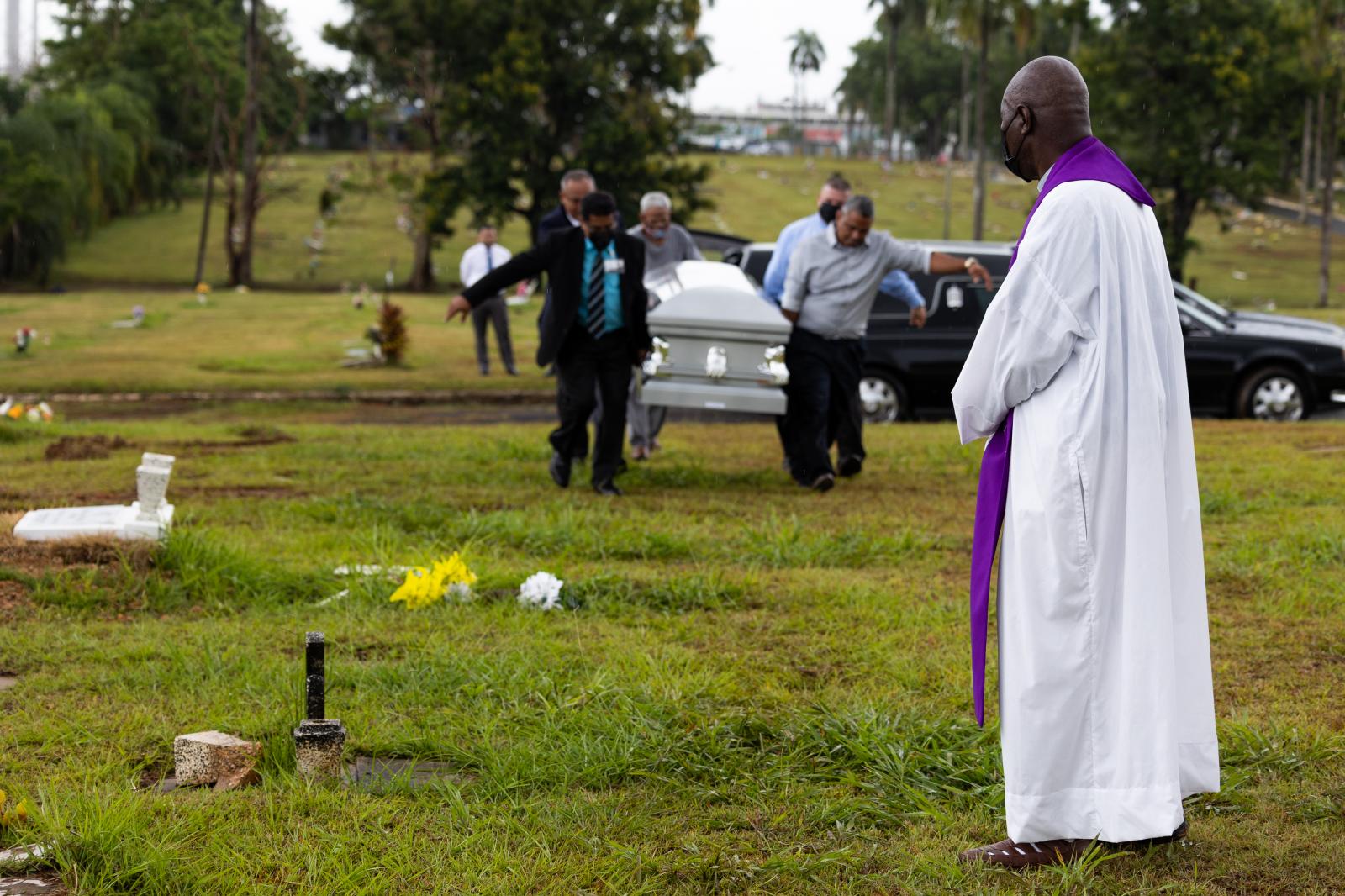Public Project
Orevwa
"Orevwa": Last farewell to 11 Haitian women who died in Desecheo shipwreck
The strength that guides people to realize their dreams of achieving a safer, more beautiful life, where they can live in peace and equality, should be the most remembered of the 11 Haitian women who died at sea, after the ship they boarded to reach the coast of Puerto Rico capsized.
Authorities estimate that the remains of 30 people who were on the boat were never recovered, while another 31 people survived the disaster that occurred on May 12, 2022. Father Rodney Algarín, pastoral vicar of the Archdiocese of San Juan, who led the posthumous tribute yesterday at the Church of Santa Teresita, in Santurce, had words that sought to give comfort to the family members who were able to attend the ceremony. "These sisters have not died. They will live forever. We proclaim... so that this communion does not disappear, these dreams that they have embodied and it is a legacy that they leave us: to fight for our dreams... that always has merit," said Algarín.
During the ceremony there was also a demand: the governments have to extend their helping hand and help the Haitians who live in a highly violent and unstable situation that worsened after the assassination of their president Jovenel Moïse on July 7. Leonel Prophil, sacristan of San Mateo Church, said that while the people of Puerto Rico have been extraordinarily supportive, Governor Pedro Pierluisi and other governors of other countries have remained silent in the face of the terrible political and social situation in Haiti. "Where are the powerful countries? They hid, where is France, where is the United States, where is the United States? Nobody has said anything... Absolutely nothing," said Prophil at the ecumenical service attended by religious leaders from multiple denominations.
The Haitian leader said that when families arrive in Puerto Rico, many of them fleeing constant kidnappings in Haiti and the lack of basic services or coming from neighboring countries on unauthorized trips, none of them receive help from government agencies, which have never come forward to help with the situation.
This work was commissioned by El Vocero de Puerto Rico with the Journalist Istra Pacheco.
You can read the history in Spanish the link below
3,037

